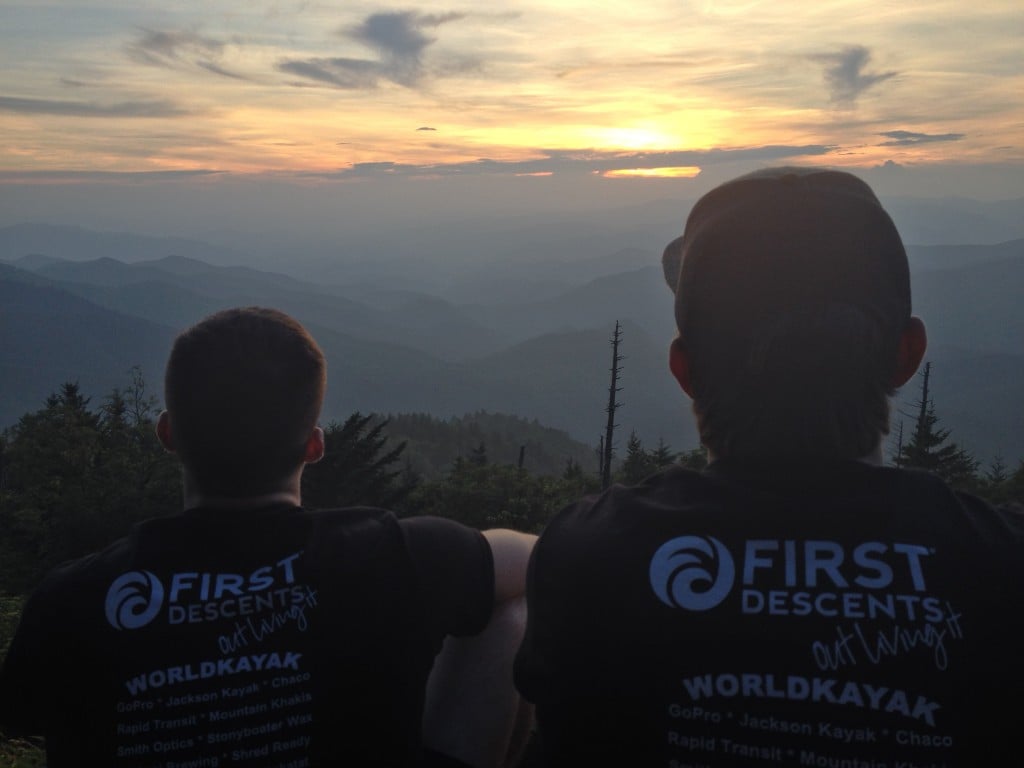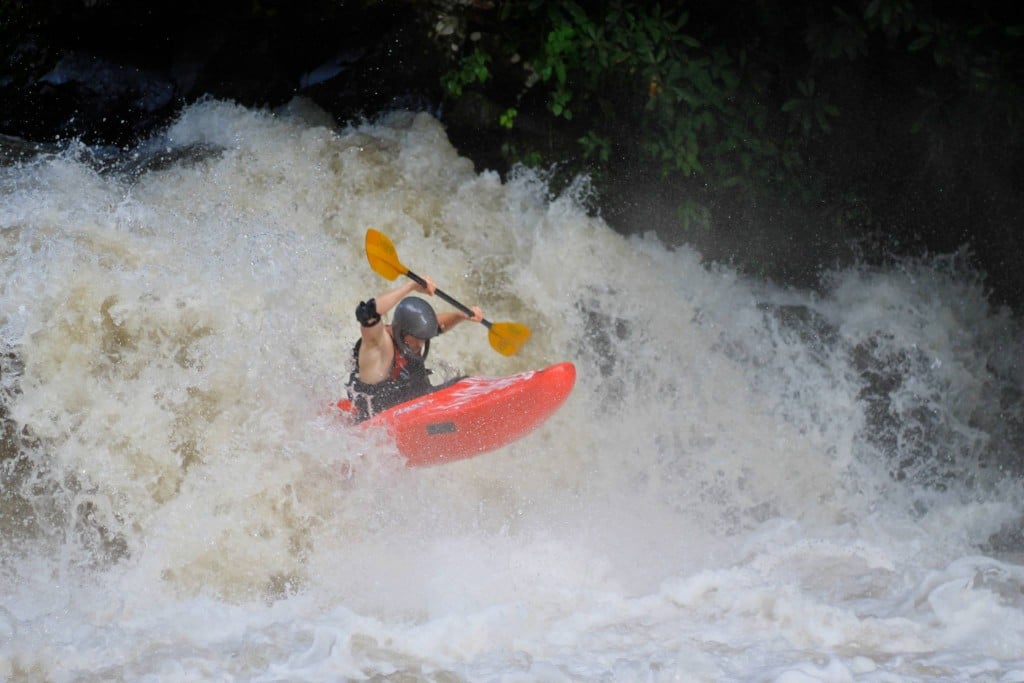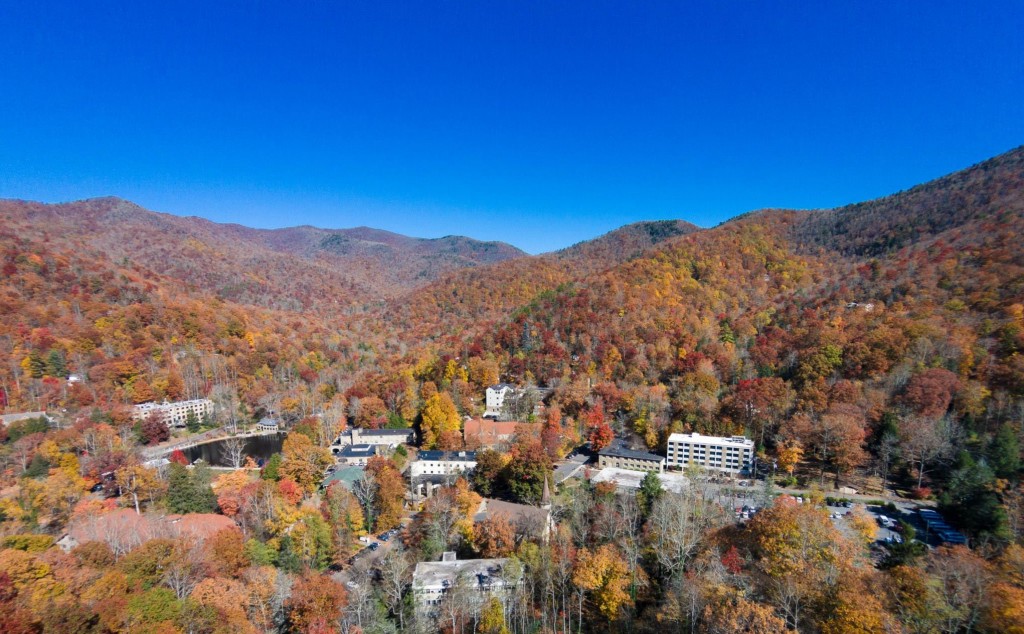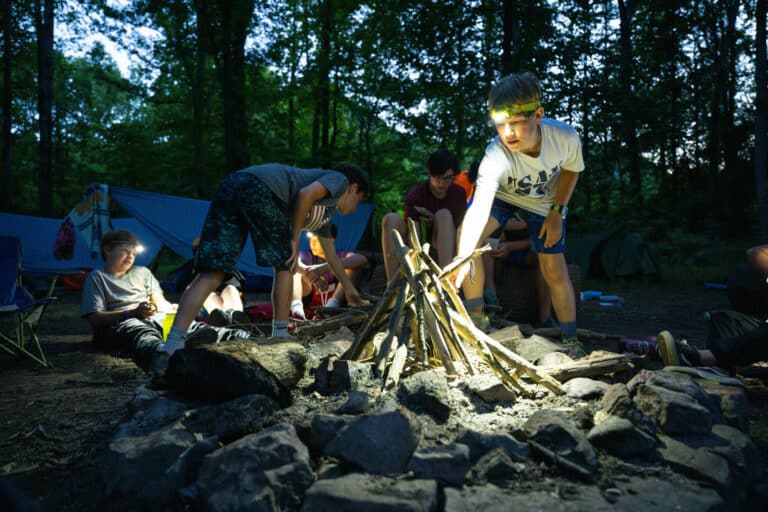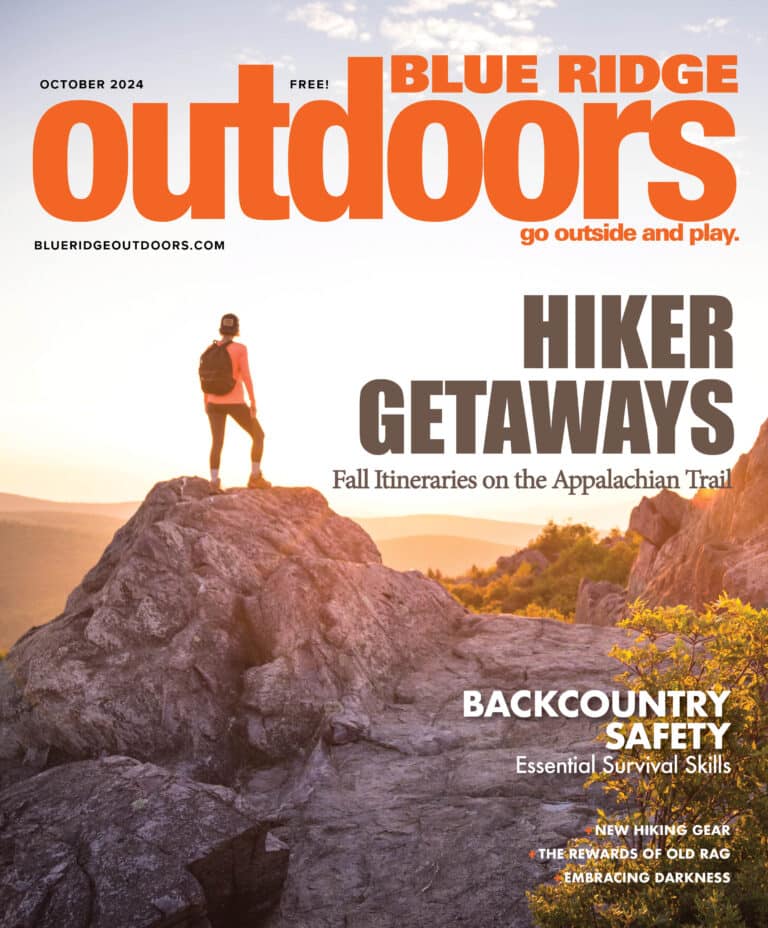In March, we asked you, the loyal reader, to vote for a school of your choosing in our fourth annual Top Adventure College Tournament. Colleges and universities met in head-to-head match-ups in a 32-school bracket. The initial 32 colleges and universities were selected for their outdoor clubs and curricula, their commitment to outdoor and environmental initiatives, the quality of their outdoor athletes and programs, and their opportunities for adventure.
Over 20,000 votes poured in—and school pride dominated our site for the duration of the contest. Each of the 32 schools in our bracket got lots of love, and for good reason: outdoor ed is thriving in the region. But one school in particular stood tall atop the heap when the feverish voting finally came to a halt.
That school is Western Carolina University, a public college of about 10,000 students, tucked away in the mountains of western North Carolina.
There are lots of things about WCU that make it an ideal school for the outdoor-minded student. It’s located close to renowned outdoors adventure havens like Great Smoky Mountains National Park and the Pisgah and Nantahala National Forests.
Photo Courtesy of Mitch Bearden
These public lands afford WCU students quick and easy access to some of the best landscapes the southern Appalachians have to offer. But what really sets it apart from similar mountain schools are WCU’s outdoor resources, experience, and leadership.
Josh Whitmore is the director of outdoor programs at WCU. A western North Carolina native, Whitmore has taught outdoor adventure skills in places like Montana and Patagonia. Now he heads up Base Camp Cullowhee, an outdoor program that has been flourishing at WCU since the mid 1980s.
“We have a staff of three full-time employees and about 25 students who help us achieve our goals,” Whitmore said. “We organize trips and events in places like Colorado and Utah, but we focus heavily on our own backyard.”
The trips that Base Camp Cullowhee organizes cater to all skill levels and range from whitewater kayaking in the area’s numerous mountain rivers to sky diving, rock climbing, hiking, and an annual Tuckasegee River clean up.
“Over the years Base Camp Cullowhee has evolved from a small outdoor program within the recreation department to its own entity with over 9,000 participant experiences per year. In 2008 we completed a 2,100 square foot indoor rock climbing facility, and just a couple years ago we added a seven-mile multi-use trail system,” Whitmore said. “Our staff does a lot of great work, but the students are the ones that really run the show here.”
One of those students is Mitch Bearden. He’s been a serious whitewater paddler for four years and says that WCU’s reputation as a top-notch outdoor school was one of the reasons he chose the university.
Photo Courtesy of Mitch Bearden
“Over the years, we have really differentiated ourselves from other mountain schools,” Bearden said. “We are within striking distance of some of the best paddling in the Southeast and have quick access to some of the area’s best trails.”
Bearden says his favorite place to kayak near campus is Upper Big Creek in Great Smoky Mountains National Park.
“You just can’t beat the scenery and the solitude of Upper Big Creek,” he said. “It’s challenging, but I love it.”
Bearden has worked as a kayak instructor at Camp Timberlake for Boys in Asheville, a retail guide at the Nantahala Outdoor Center in Bryson City, and is now a guide for Basecamp Cullowhee. He says winning the Blue Ridge Outdoors Top Adventure College Tournament for the second consecutive year is a major source of pride for the university and its students.
“It really means a lot to everyone,” he said. “We strive to brand ourselves around the outdoor lifestyle, and this is just confirmation that we are doing a good job of that.”
A Close Second
While WCU may have taken the cake in this year’s Top College Contest, a fiery opponent gave the school a serious run for its money.
Montreat College is a tiny school with an enrollment of just over 1,000, but it’s situated near four wilderness areas, four North Carolina state parks, several rivers, and the 14-mile trail that ascends Mount Mitchell, the tallest peak east of the Mississippi River.
Photo Courtesy Montreat College
Amid this backdrop, Montreat has developed one of the best outdoor programs in the country.
“The outdoor program started in the mid-1970s at what was then a junior college known as Montreat-Anderson,” said Chair of the Outdoor Education Department Brad Daniel. “It began as a two year associates Degree in Outdoor Recreation and a 20-day Outward Bound-type wilderness expedition called Discovery. The first Discovery expedition went out in 1976. In 2016 we will celebrate our 40th year of wilderness programming, making it one of the longer college-sponsored extended wilderness programs in the United States.”
Daniel says the primary purpose of Montreat’s Outdoor Education (OE) program is to prepare students to rise up to the everyday challenges of life while molding some of them for careers in the outdoors industry.
Like Josh Whitmore of WCU, he sees the students as the primary engine behind the success of Montreat’s Outdoor Education.
“Many students cite Discovery as one of the most important experiences in the program,” he said.
Student participant Daniel Harmon says the program has helped him grow by making him step outside his comfort zone.
“The OE program has helped me grow by forcing me to become the leader I knew I could be,” he said. “Through the leading of small groups, I’ve found that that I can not only handle leadership, but I can make a difference in the lives of those I lead.”
Daniel’s OE classmate Kara Smith says that her involvement in the OE program sparked a desire to pursue a career in the outdoor industry.
“I think the significant experience would of course have to be Discovery,” she said. “I had never experienced the outdoors like that, and it really affirmed my desire to be an outdoor professional and show others the beauty of the natural world.”
Congratulations to Western Carolina University and Montreat, and look for an extended feature highlighting regional outdoor education in our August issue.

